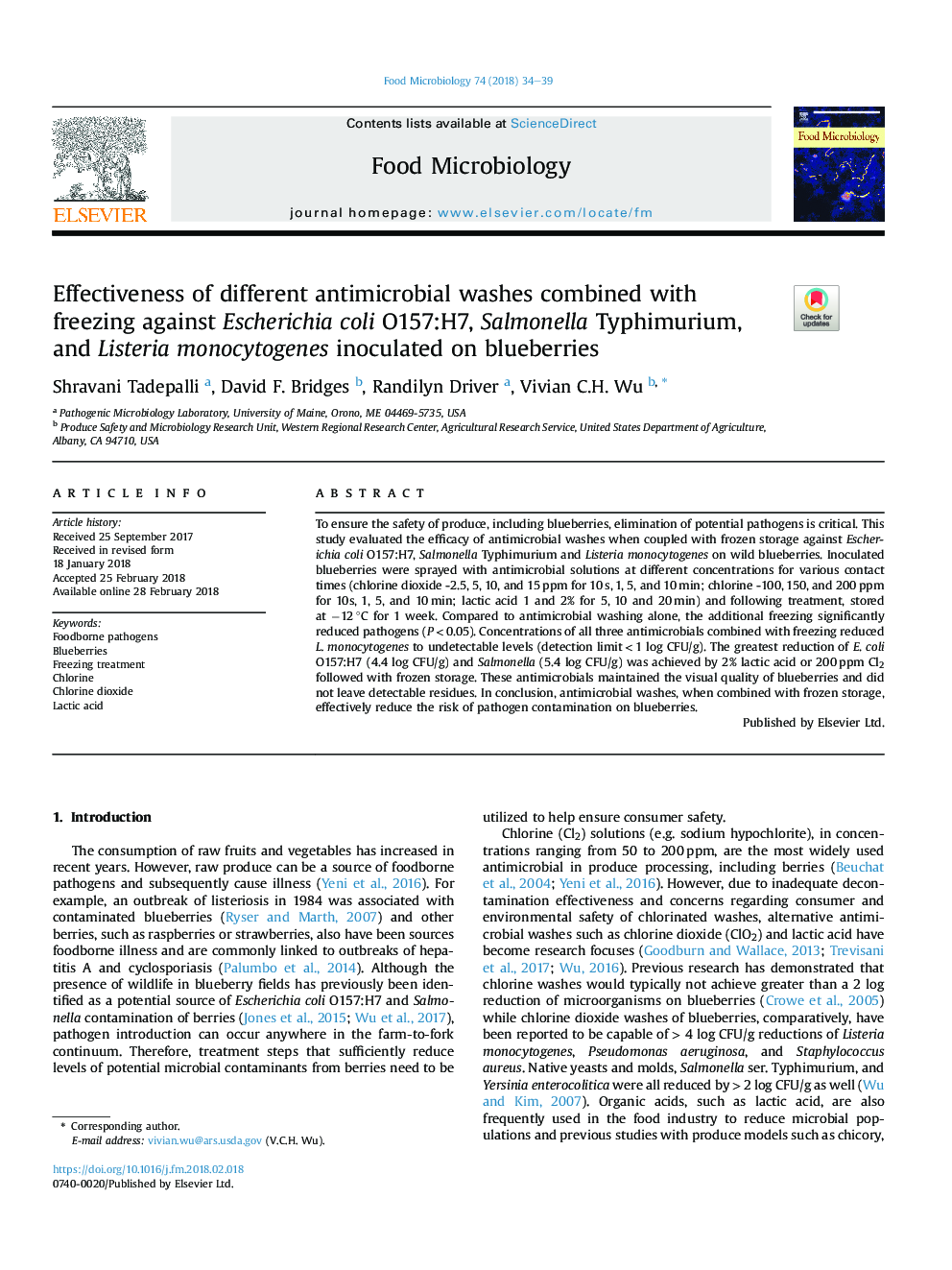| Article ID | Journal | Published Year | Pages | File Type |
|---|---|---|---|---|
| 8843496 | Food Microbiology | 2018 | 6 Pages |
Abstract
To ensure the safety of produce, including blueberries, elimination of potential pathogens is critical. This study evaluated the efficacy of antimicrobial washes when coupled with frozen storage against Escherichia coli O157:H7, Salmonella Typhimurium and Listeria monocytogenes on wild blueberries. Inoculated blueberries were sprayed with antimicrobial solutions at different concentrations for various contact times (chlorine dioxide -2.5, 5, 10, and 15â¯ppm for 10â¯s, 1, 5, and 10â¯min; chlorine -100, 150, and 200â¯ppm for 10s, 1, 5, and 10â¯min; lactic acid 1 and 2% for 5, 10 and 20â¯min) and following treatment, stored at â12â¯Â°C for 1 week. Compared to antimicrobial washing alone, the additional freezing significantly reduced pathogens (Pâ¯<â¯0.05). Concentrations of all three antimicrobials combined with freezing reduced L. monocytogenes to undetectable levels (detection limitâ¯<â¯1 log CFU/g). The greatest reduction of E. coli O157:H7 (4.4 log CFU/g) and Salmonella (5.4 log CFU/g) was achieved by 2% lactic acid or 200â¯ppm Cl2 followed with frozen storage. These antimicrobials maintained the visual quality of blueberries and did not leave detectable residues. In conclusion, antimicrobial washes, when combined with frozen storage, effectively reduce the risk of pathogen contamination on blueberries.
Related Topics
Life Sciences
Agricultural and Biological Sciences
Food Science
Authors
Shravani Tadepalli, David F. Bridges, Randilyn Driver, Vivian C.H. Wu,
